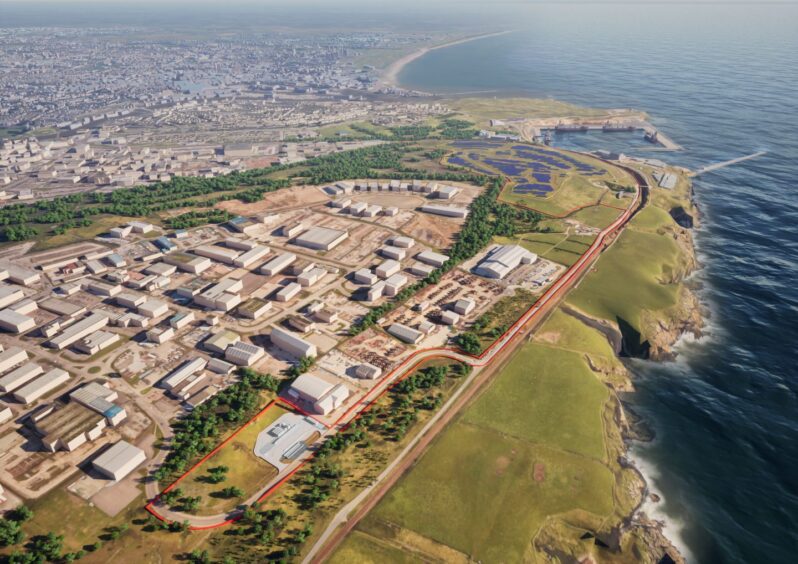
Scottish firm Hydrasun will create 40 green engineering and construction jobs after securing work on the Aberdeen Hydrogen Hub (AHH).
The BP and Aberdeen City Council joint venture behind the £40 million green hydrogen project announced the first tranche of contracts for local supply chain firms yesterday.
BP Aberdeen Hydrogen Energy Limited (BP AHEL) took a final investment decision (FID) on the hub in July after months of delay.
Speaking to Energy Voice, Hydrasun chief executive Neil Thompson said the contract is an “important milestone” for the Cove-headquartered company.
He also emphasised the “patience and resilience” the company displayed as the UK hydrogen sector waited for projects to materialise.
“It allows us to proceed with our investment into [hydrogen] and scale up our team and ultimately employ more people and grow our business,” he said.
“We’re looking to create 40 jobs through the life of the project from our business point of view, but it [also] allows us to make that next step change in our energy transition journey.”
Securing work on the AHH will give Hydrasun “track record and credibility” as the company pursues further work on HAR1 and HAR2 projects, Thompson added.
“It gives us scale, it allows us to build that engineering team further, all of that supports what we’re trying to do in HAR1 and HAR2,” he said.
“We’re engaged in both and see opportunities in both, so as an enabler to growth it’s really important for us as as a business and I think it also brings confidence in the wider supply chain.
“When you’ve already got a key project on the order book that the supply chain can see is real, they want to get engaged with it and that makes everything that bit easier.”
Hydrasun growth
Founded in 1976, Hydrasun started out as a provider of fluid transfer, power and control solutions to the offshore oil and gas sector.
Private equity firm SCF Partners acquired Hydrasun in 2021, which began a pivot towards energy transition opportunities including hydrogen and renewables.
In 2022, Hydrasun itself acquired Berkshire-based Fuel Cell Systems in 2022, immediately doubling its hydrogen revenues.
Earlier this year, SCF Partners combined five of its firms to launch a combined North East decarbonisation business worth £500 million known as D2Zero.
Thompson said working under the D2Zero umbrella allowed for pooling resources and capability across the business, giving Hydrasun greater relevance in the market.
HAR1 and HAR2
Alongside the AHH project and the HAR1 and HAR2 rounds, Thompson said 2024 has been a “pivotal year” for the company.
“These projects are now getting across the line, there is movement in the marketplace, so I do see this as a milestone year in terms of the progress of hydrogen in the UK economy,” he said.
Despite each HAR1 project having “its own challenges”, Thompson said Hydrasun is engaged with industrial off-takers committed to seeing the projects through.
“We do see these projects going ahead,” he said.
“HAR1, I think, will see a success and projects going through FID and into the next stage.”
As more projects get off the ground, Thompson said he expects more traditionally oil and gas-focused firms to look at hydrogen opportunities more closely.
“There’s been a lot of talk about these projects and I think a lot of the supply chain have been standing back waiting to see it happen,” he said.
“The [AHH] is an enabler for that, but as these other projects come to FID then momentum will build in that journey”.
Hydrogen skills and manufacturing
Despite positive signs of progress, challenges still remain for the hydrogen supply chain in Scotland.
Thompson pointed to workforce challenges as a primary concern, but said Hydrasun has invested in its own training academy to grow the number of skilled workers.
“But overall demand on workforce skills, technicians and labour within the market will be a challenge,” he said.
“If we see those numbers of [HAR1 and HAR2] projects coming to the market at the same time as you’ve got more wind projects, the power grid has to be updated… all of that happening at the same time will obviously create a significant demand on the workforce within the UK.”
Hydrogen export opportunity
But with two Scottish projects successful in HAR1 and more potentially on the way in HAR2, Thompson said will be “hugely important” to projects in Scotland delivered.
“If we’re going to anchor a hydrogen industry in Scotland and genuinely get to a point where we can be an exporter of hydrogen to markets such as Germany… we need to build success upon success,” he said.
Hydrasun expects to source about 65% of the AHH contract value from the local supply chain, but concerns remain about the lack of electrolyser manufacturing in Scotland.
Aberdeen’s Energy Transition Zone (ETZ) is aiming to attract electrolyser manufacturing to its proposed hydrogen campus in the Granite City.
While attracting that level of inward investment is “clearly important”, Thompson said Scotland does not need to be “fixated” on securing an electrolyser manufacturer.
“At the end of the day, it is a global market and what you may find that you’ll have your system integrators here,” he said.
“There’s plenty of opportunity within the sector outwith the electrolyser OEMs, and we shouldn’t lose sight of that.
“Let’s focus on our current strengths and build on that.”
UK and Scottish government policy
An important part of developing hydrogen as an export opportunity for Scotland will ensuring offshore wind projects move ahead to ensure UK producers can compete with places like the Middle East and Australia, Thompson said.
But focusing on building scale, and enabling more industrial off-takers to switch to hydrogen, should be the focus for the UK and Scottish governments, he added.
“To get scale, we need to have a joined up strategy on this,” Thompson said.
“You need all the pieces of the jigsaw puzzle together to make this work.”
Ensuring major oil and gas firms like BP continue to invest in hydrogen projects is also important for firms like Hydrasun, Thompson said.
“It’s hugely important we all recognize… how important the North Sea is, and the industry is, to driving the energy transition,” he said.
“We couldn’t achieve the patience and resilience that we’ve been able to do without our core [oil and gas] business.”
Recommended for you


 © Supplied by Hydrasun
© Supplied by Hydrasun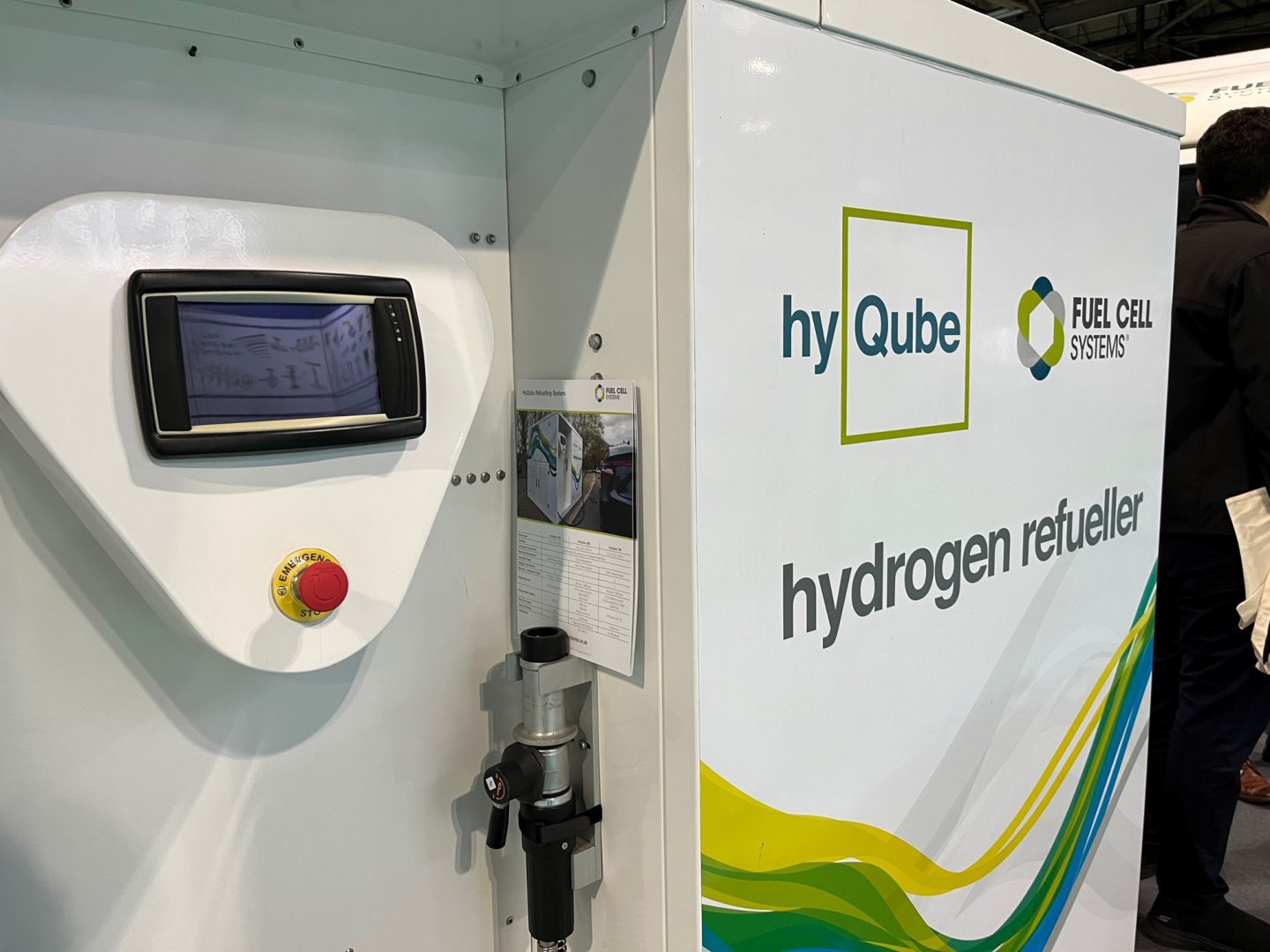 © Supplied by Andrew Dykes
© Supplied by Andrew Dykes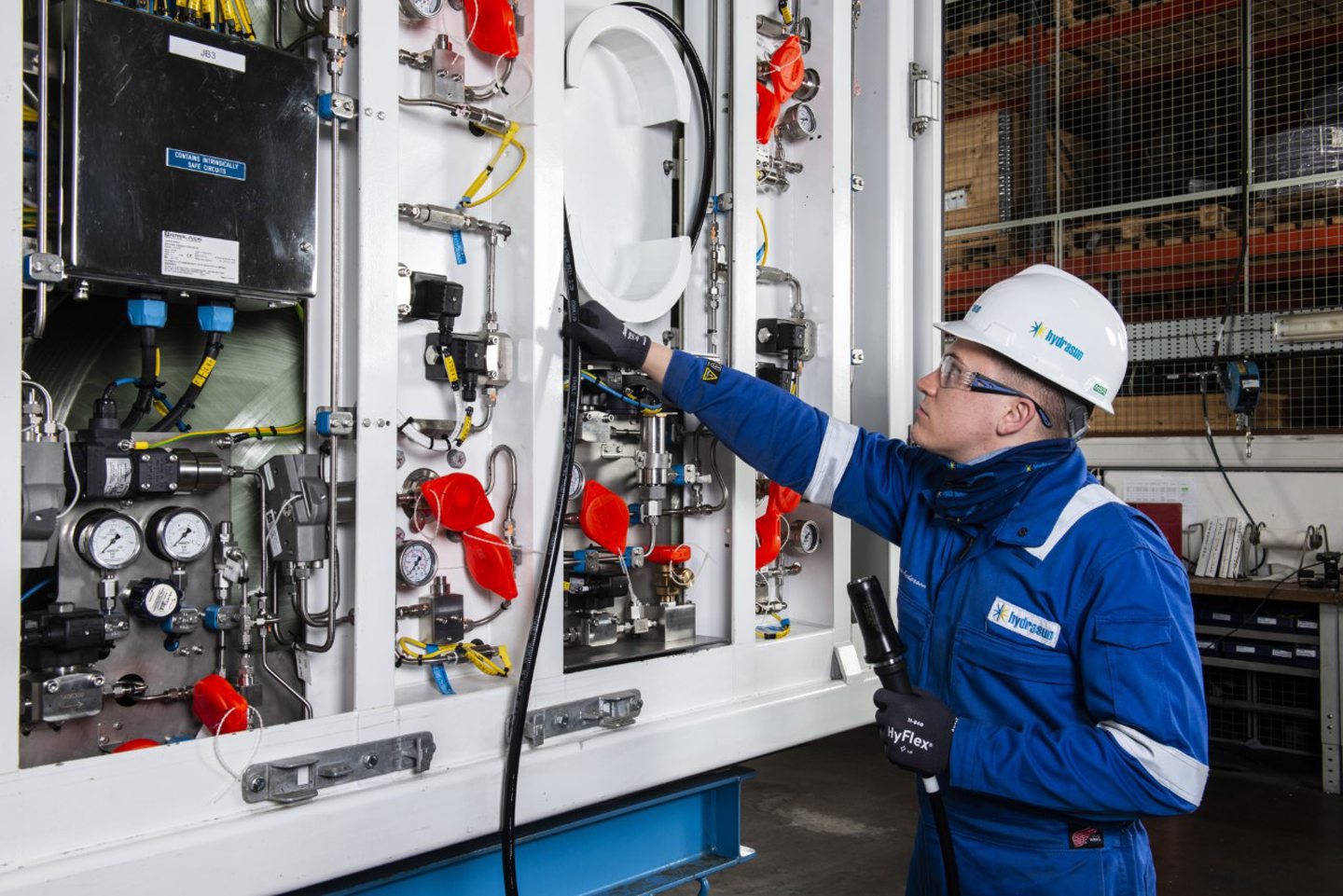 © Supplied by Hydrasun
© Supplied by Hydrasun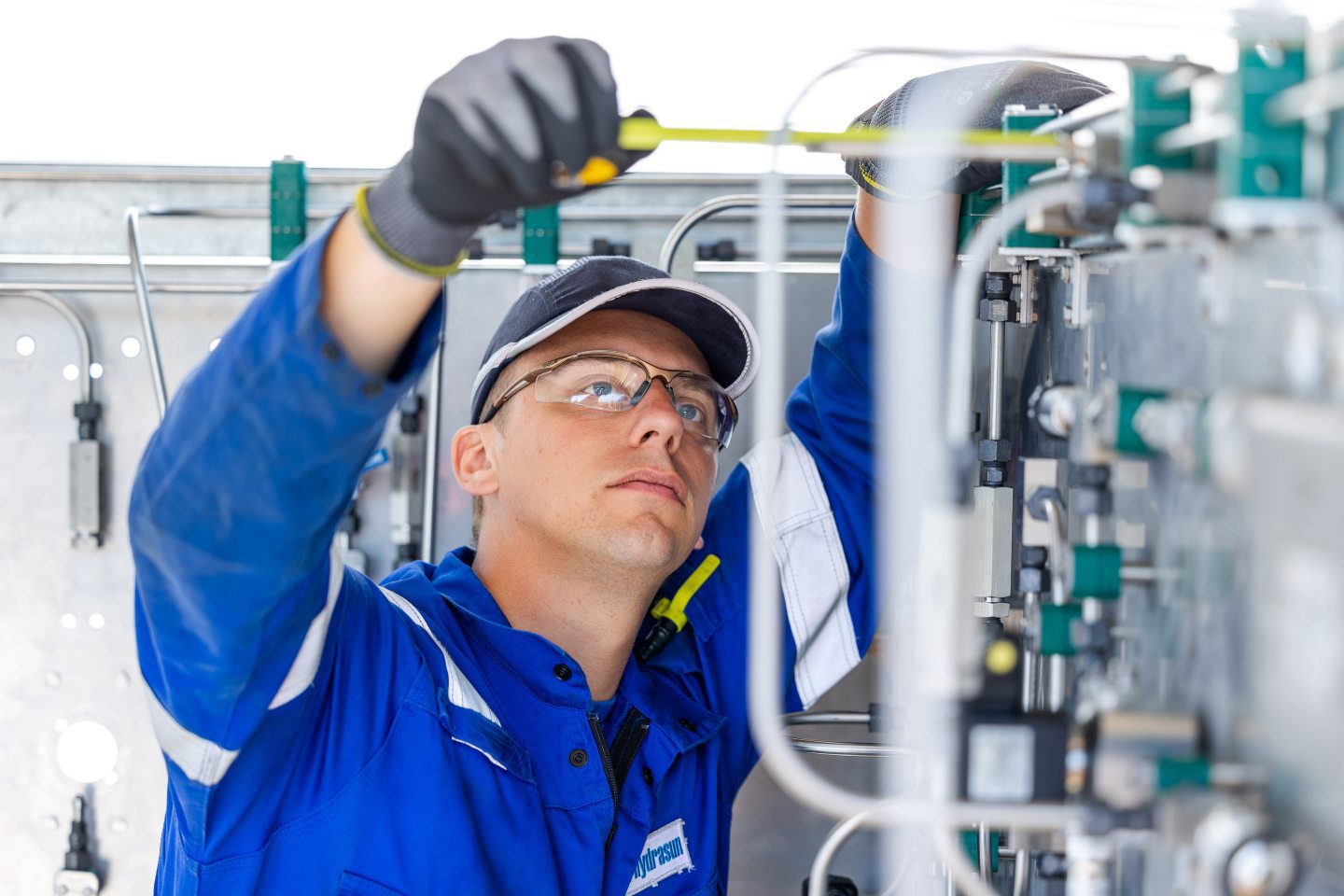 © Supplied by Hydrasun
© Supplied by Hydrasun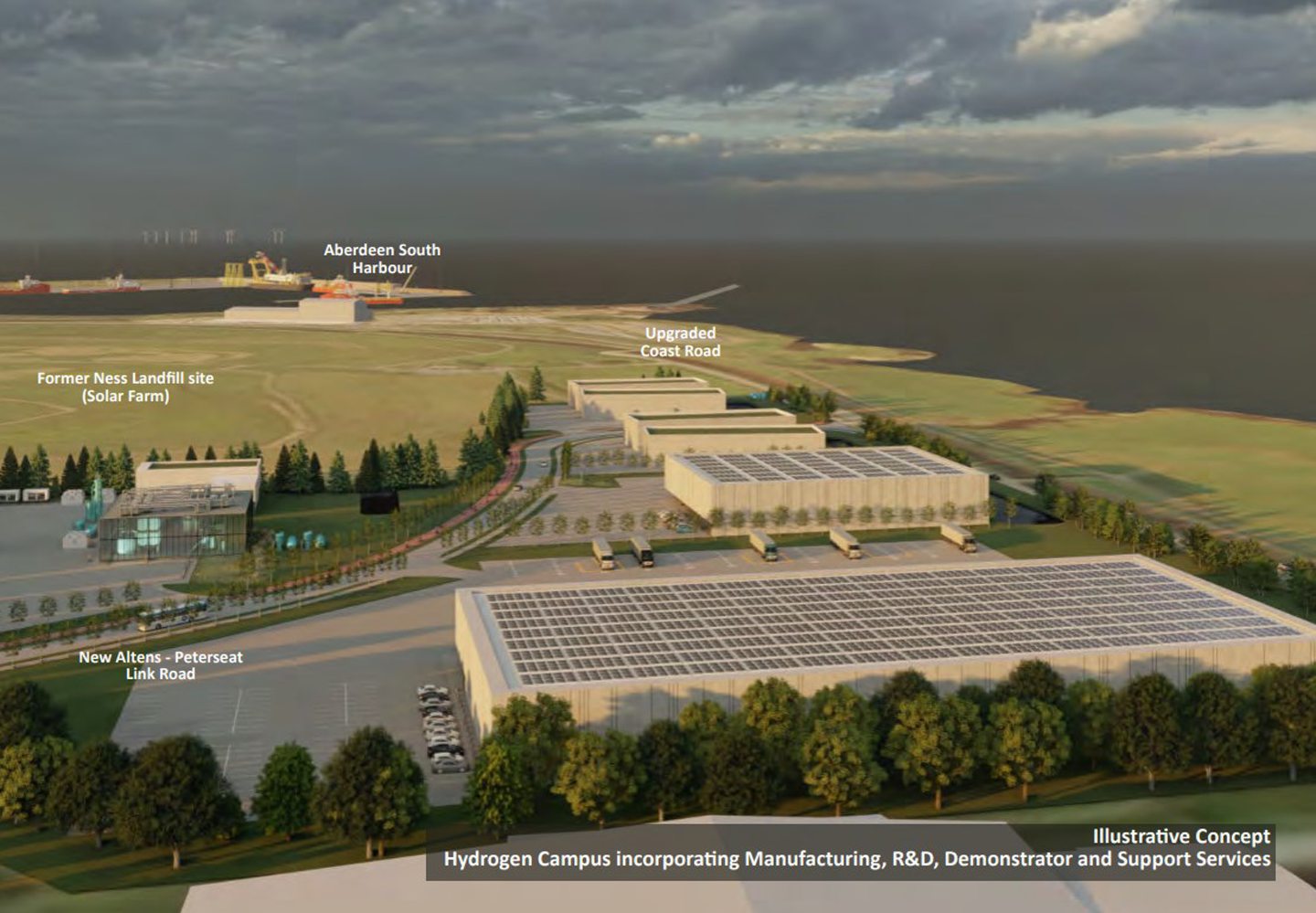 © Supplied by Ironside Farrar
© Supplied by Ironside Farrar